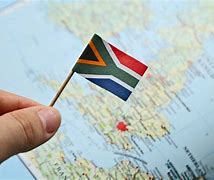
Umm Muhammed Umar
Well known economist Magnus Heystek kicked the year off with an article in which he questioned the sustainability of the economic conditions in South Africa. As we move into 2022, South Africans are poorer today than they have ever been relative to the rest of the world.
In his article on Biznews.com, Heystek, an investment strategist at Brenthurst Wealth also touched on the topic of emigration, which is increasingly unaffordable for South Africans, given the consistent weakening of the Rand.
Heystek painted a picture of the kind of knock South Africa had taken in the last decade, beginning just after the country had euphorically hosted the first World Cup on the African continent. Speaking to Radio Islam, he said, “South Africa was on a high and we just really felt on top of the world. It’s going to be the start of something special. The country was crawling with tourists. We were getting very favourable press by the world.” He added, “Initially it looked like that was going to be the case. The tourism was fantastic. But then it just started sliding. I mean, the commodity cycle started sliding, the first reports of corruption started developing, and on all metrics, the important ones, we started moving in the wrong direction to such an extent that all the major international credit agencies started downrating us.” He said that South Africans had become poorer – the exchange rate has gone from R7.50 to R16.00, “Property prices are not going up in any way in dollar terms, and South Africa’s stock market has been a very poor performer.” Heystek said that we needed to ask why this has occurred, and what could be done to extricate ourselves from this situation.
In his article, Heystek seemed to be raising the concern that the coming decade could be just as bad as the last ten years, if not worse. He said that when President Ramaphosa came to power, there was for a brief period of time, rising optimism. There was money coming into the country, and the Rand strengthened. The stock market was doing well in 2017 and 2018. South Africans thought this was the turning point, and that President Ramaphosa was going to be the man who turned the economy around. However, within six months, it started to unravel and money started flowing out of the country again. Heystek said the investment community was becoming greatly despondent by the slow pace of reform by Ramaphosa, to such an extent that foreign investors have been moving their money out of South Africa for the last five years at an enormous rate. R650 billion has been moved out of South Africa in the last 5 years. Heystek said that South African investors have also moved their money equally, if not in greater amounts, because their returns elsewhere have been fantastic.
Despite warnings from the IMF, the government seems unable to move to get economic optimism higher and to get money back into the country, and to create employment. According to Heysteck, South Africans could face another decade of low, or no, economic growth, resulting from the very high level of unemployment, which could have could have socio economic consequences, such as the looting witnessed in July in KwaZulu Natal and Gauteng.
Heystek said that he was not convinced the situation would improve if the ANC was voted out of power in 2024. He reiterated, however, that the ANC would do whatever it took to remain in power, including spending vast amounts of money. On Monday, President Ramaphosa, said there would be a Basic Income Grant that has been debated for several years now, but suddenly seems to have been authorised. He also said that expropriation without compensation would be undertaken, just in another form.
Fortunately, Heystek also said that South Africans were very innovative, and would do whatever they needed to, to try to keep their businesses afloat. He said the majority of South Africans would not be able to emigrate as it has become incredibly expensive to do so. However, they might relocate internally to avoid residing in political hotspots. Those who were likely to leave would be freshly graduated from university, but that did not mean a movement of assets or money. Rather, it was a movement of intellectual capital, possibly just as damaging in the long run.







0 Comments